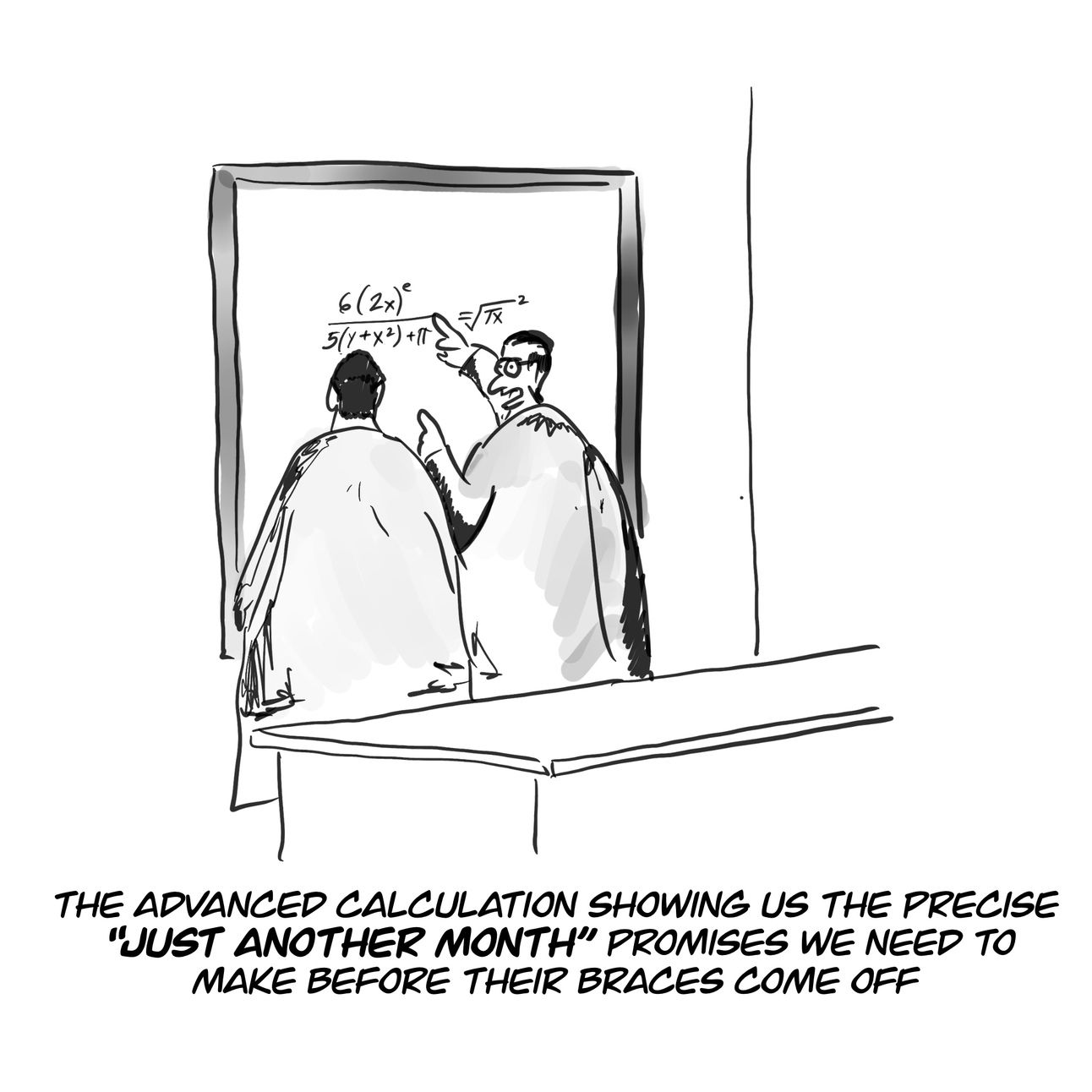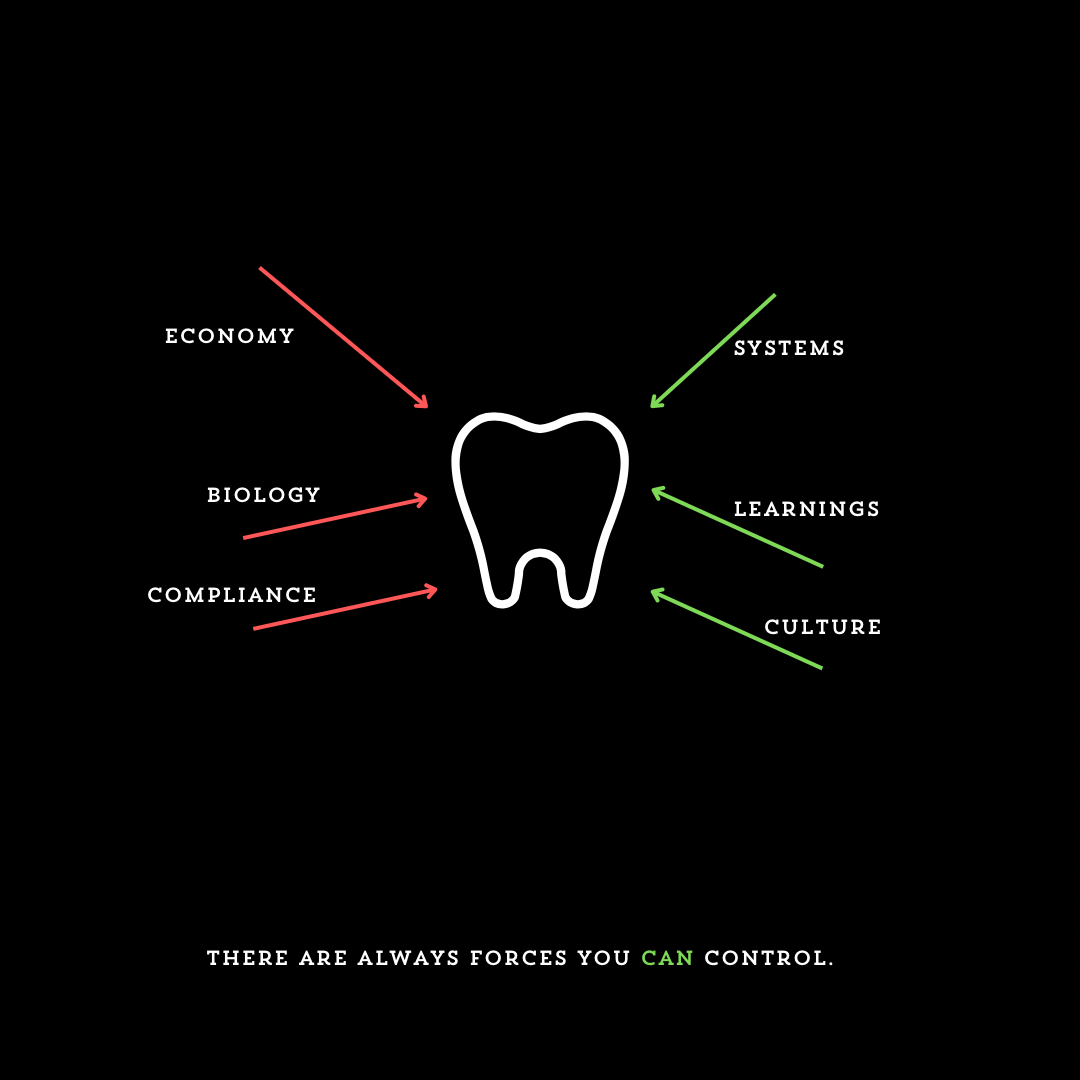- The Moment
- Posts
- Morgan Housel's 5 Orthodontic Risks
Morgan Housel's 5 Orthodontic Risks
Read time: 4 minutes.
At a glance:
Quote:
Picture
What I’ve Learned
Business Idea
“If all your viewpoints are the same at age 50 as they were at age 30, you’ve lost 20 years.”

What I Learned:
This week’s lesson comes from Morgan Housel, who spoke on business, competitive advantages, and why the only thing harder than gaining a competitive advantage is not losing it.
He published his latest book on the topic, Same as Ever
In an interpretation of the orthodontic practices we call on - we thought it was apt to share where we see this play out within our practices.
Being right instills confidence that you can’t be wrong. Success is associated with hubris, and hubris is the beginning of the end of success.
This hit on the quote Dr. Jamie Reynolds wrote in his book Level the Curve: The greatest threat to orthodontics isn’t direct-to-consumer, vendors, or another practice down the street. The most significant danger in orthodontics is posed by the ease with which most tenured providers have achieved their success. Because the margins in orthodontics have historically hovered at 40% to 50%, you’d have to try to fail. But those margins are precisely what’s drawn in private equity and savvy business people. The next generation needs to be uncomfortable with comfort.
Success leads to growth, but a big organization is a different animal than a small one, and its strategies are entirely different.
Mathematically speaking, a 200-start practice achieves 12% growth if it brings in 25 more patients. But 25 more patients to a 1500 start practice is a rounding error. The systems work differently from small to big around the 400-500/yr patient mark. What got you here won’t get you there.
The third is the irony that people often work hard to gain a competitive advantage for the intended purpose not to work hard. If that’s your only reason to work hard today, you’re in for a surprise.
There’s a financial movement called FIRE (Financial Independence/Retire Early) where you save, scrimp, and track every penny for your first ten to fifteen years and put it towards investing. The idea is that you can retire in your early 40s and let compound interest do its magic. The problem is when people switch: if you’re used to saving, keeping, and hoarding - you don’t just change overnight to enjoying and spending. It doesn’t work. Same with practices. We run into an illusion where an orthodontist is grinding to get to some magical point in the future (i.e., I’ll be happy once I’m north of 400 starts a year). Except, when the goal hits - they move the goalposts. Don’t work your tail off with the idea that you’ll enjoy the later years of your practice. It rarely pans out that way, and it can undermine all the success you earned and deserve.
The fourth is that a valuable skill in one era may not extend to the next. You can work hard and be as paranoid as you want, but if the world no longer values your skills…it’s a loss.
A few decades ago, a practice could thrive on knowing one bracket system needing only their hands and a few wires. But that all changed in the early 2000s when one company spent millions with an ad showing a young man and a woman on a date… and the man smiled with a mouth full of metal, causing the woman to run. Clear aligners became necessary to capture an emerging adult market, and those who didn’t adopt or delayed their learning never caught up with those who did. They still haven’t. Being fine- instead of wanting to learn more- is dangerous.
Success is owed to being at the right place and time. The reversion to reality that unmasks good luck is often obvious only in hindsight.
Give credit to hard work, sacrifice, and ability. But also acknowledge how luck plays a huge factor in the success of a practice. Setting up an office in an area about to explode or selling when cash is cheap and multiples are high is out of anyone’s control. What made one practice immensely successful could sink the next. Luck plays a factor. The trick is focusing only on patterns and behaviors that emerge in most successes - not replicating one guy’s touted method. Orthodontists (as will anyone) will overweigh their business acumen… and underplay their luck.
